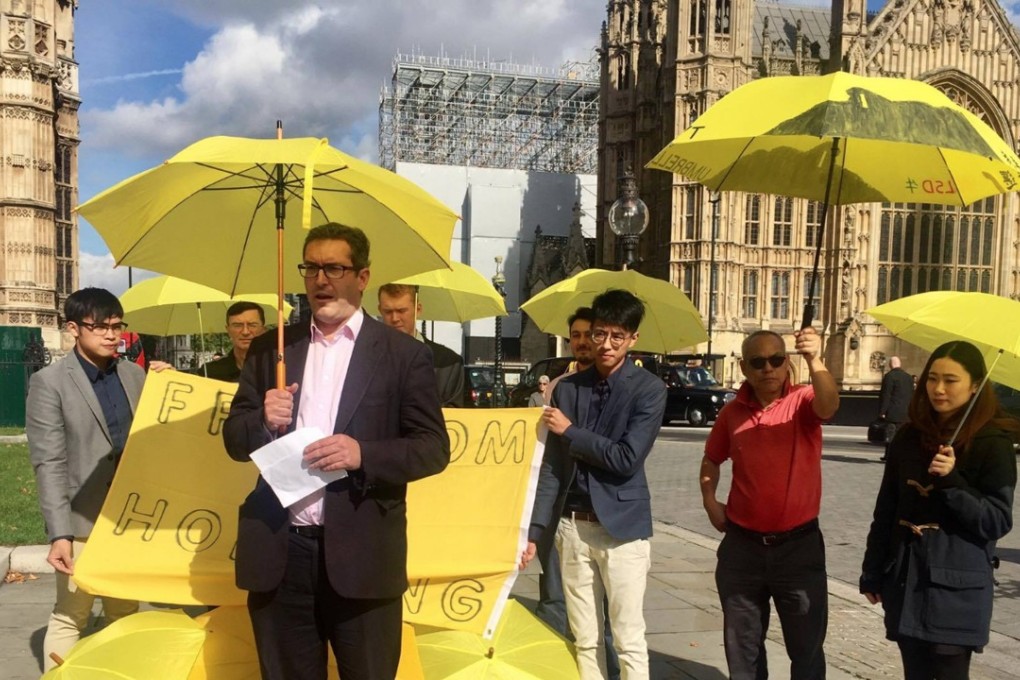British human rights activist refused entry to Hong Kong
City’s former chief secretary voices concern that ‘this is going to be the norm’ after Benedict Rogers turned back at airport

The UK government has demanded an “urgent explanation” after a British human rights campaigner known for raising concerns about political freedom and human rights in Hong Kong was refused entry to the city on Wednesday.
Benedict Rogers, deputy chairman of the UK Conservative Party’s human rights commission, said the refusal showed “there is a problem with ‘one country, two systems’”.
At about midday on Wednesday, Rogers arrived at Hong Kong International Airport. There, he was refused entry and escorted to a plane to Thailand, where he had come from, and onwards to London.
Speaking afterwards, he said he had had a number of indirect warnings from the Chinese embassy in London ahead of his trip. He said there was concern that he intended to visit the jailed student leaders of the city’s pro-democracy movement, Joshua Wong Chi-fung, Nathan Law Kwun-chung and Alex Chow Yong-kang.
“Last week I had received, via a third party, warnings, expressions of concern, from the Chinese embassy in London of the possibility of me trying to visit (the three activists) in prison, and that is what alarmed them,” he said.
He said he had not planned to visit the trio.